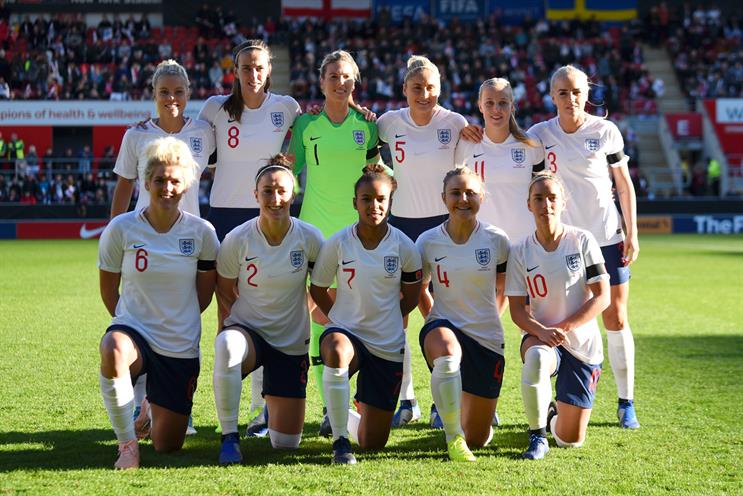Football is unrecognisable from the game of the past – and we’re not just talking about the controversial use of video assistant referee.
Broader societal tensions become even more visible when they come together in the melting pot of football. The game unifies audiences, shines a light on issues and – in the case of Raheem Sterling – unpacks institutional racism.
Adidas tackled the environment by turning plastics into performance sportswear with "Parley for the oceans" and (male) Spanish team Leganés took on women’s rights by wearing purple shirts that demanded "#NoALaViolenciaDeGénero".
Football has never been more exciting, but it can never be a truly global game while half the planet has been ignored and it can never be the beautiful game without parity.
Women’s football is football. It might have taken a long time for people to realise this, but there’s now a palpable momentum building for the next generation of female players. They can finally see a path from enjoying the game all the way to the kind of elite career that was previously ring-fenced for men.
Gender representation in sports media has been skewed for so long, but in 2019 we’re putting "not bad for a girl" thinking to bed and celebrating the new wave of female experts such as Alex Scott, who was lauded for her work during the last World Cup, and is a sign of things to come.
On top of this, the entire sport will be lifted to new levels at the World Cup in France this summer.
Arsenal and England player Jordan Nobbs believes that increased airtime for the tournament will make all the difference. In our new Modern Football Fan report, she says: "The perfect scenario for women’s football is more media. The more people can watch us, come to our games and see the way we play, the more it will change opinions."
This is about shining a light on a new set of heroes. Despite the sexism, social media abuse and threats that many experience, football has always been credited with transforming the lives of these female footballing trailblazers.
In many cultures, women’s football is a vehicle for social change – not just within the game, but in society at large. In China, for example, football’s culture and community is providing female fans with a space to stretch ideas of femininity.
Entering the women’s football space is not about brands being charitable; it’s about being first to market (with the window closing shortly) in the sport’s biggest growth area. It’s just smart business and, on top of that, it’s very accessible and has great potential for unlocking storytelling. It’s football’s best kept secret.
There are multiple briefs landing on our desks where "empowerment" is paramount. Rebecca Smith, Copa90’s global executive director of the women's game, has played in two World Cups and two Olympics. She points out: "We don’t need to empower young girls and women, and least of all world-class athletes. They just need to have the same opportunities as their male counterparts and they’ll show the world the power they already possess."
Brands can’t rely on the World Cup to solve their "purpose problem" or even to appeal to today’s modern football fan. They need to show real commitment, to care about the fans as much as the sport, and to prove they have a role to play and a right to talk about their position.
Visa shows that brands can get it; it is sponsoring women’s football until 2025, with the unbundling of the rights of the women’s game from the men’s for the very first time. This commitment will guarantee respect from a savvy young audience who see through paper-thin marketing.
This exciting new landscape should give federations, clubs and brand partners the confidence and appetite to expand the way they think about and engage with modern fans – whether that’s an investment in taking the women’s game to the next level, helping to deal with complex issues of identity or shining a light on the moral and social values that football can advocate in the world.
James Kirkham is chief business officer at football youth media brand Copa90. He is speaking at 北京赛车pk10's Future Fit conference on 26 February


